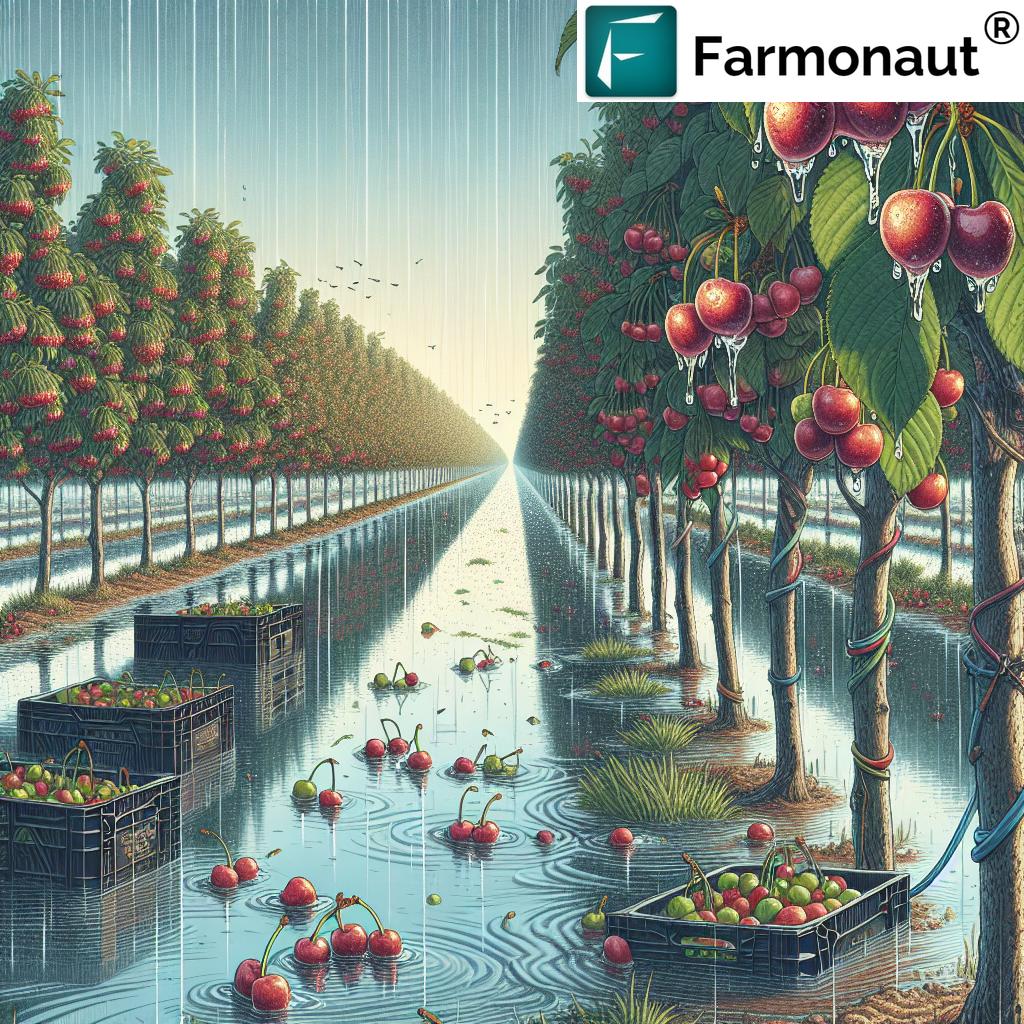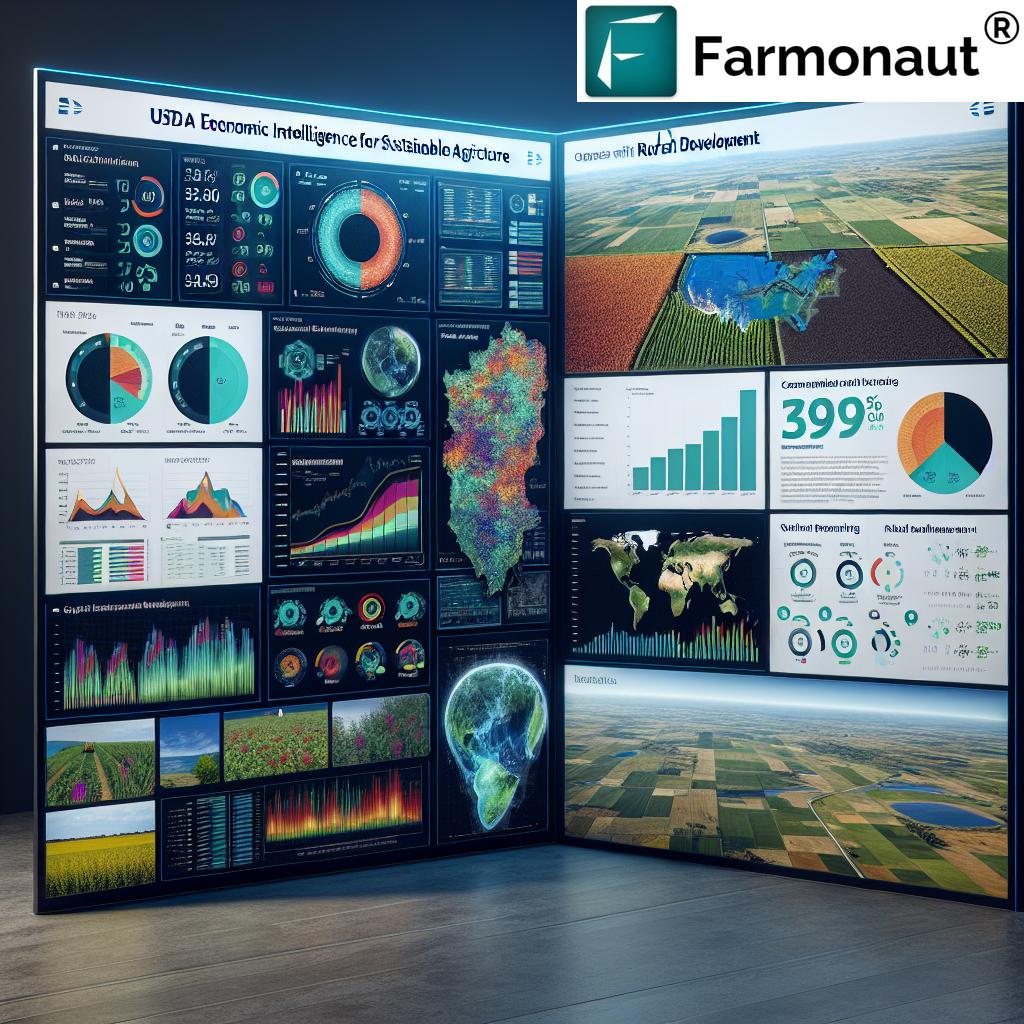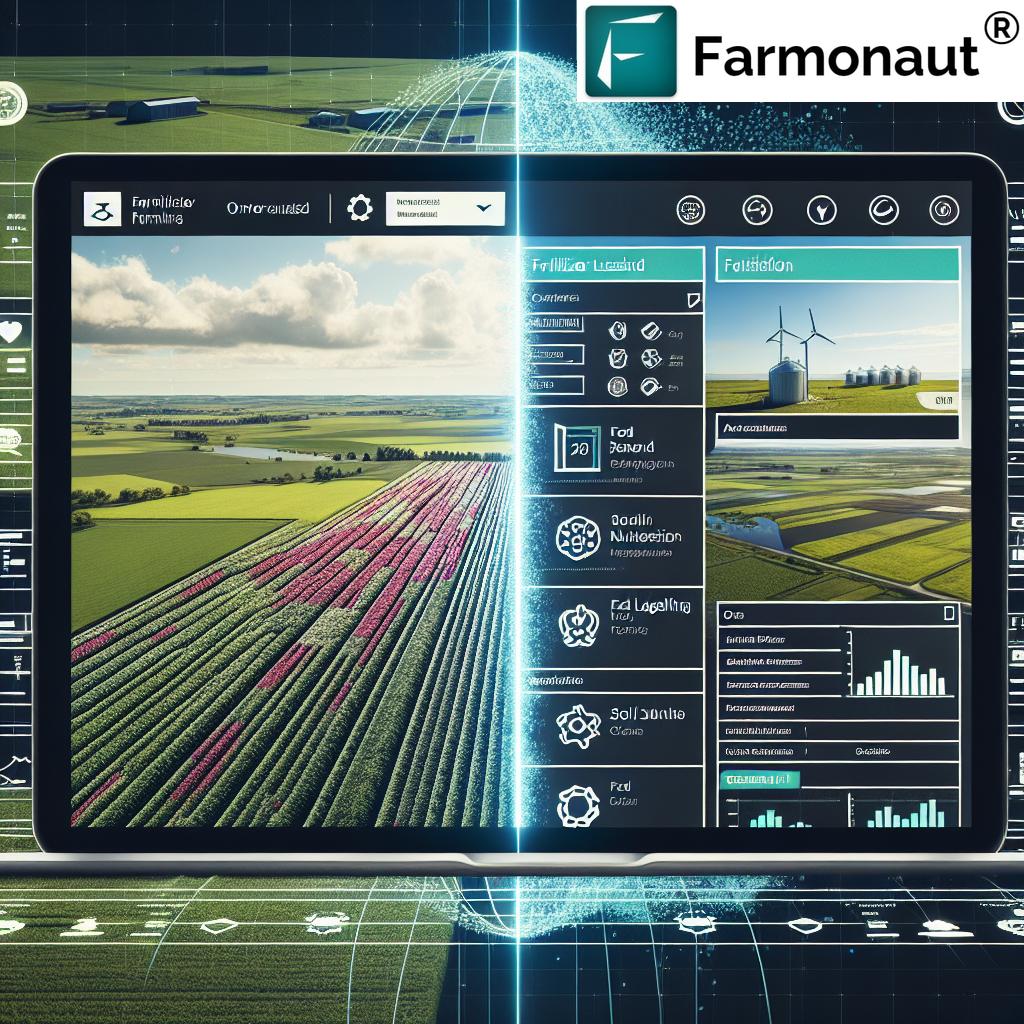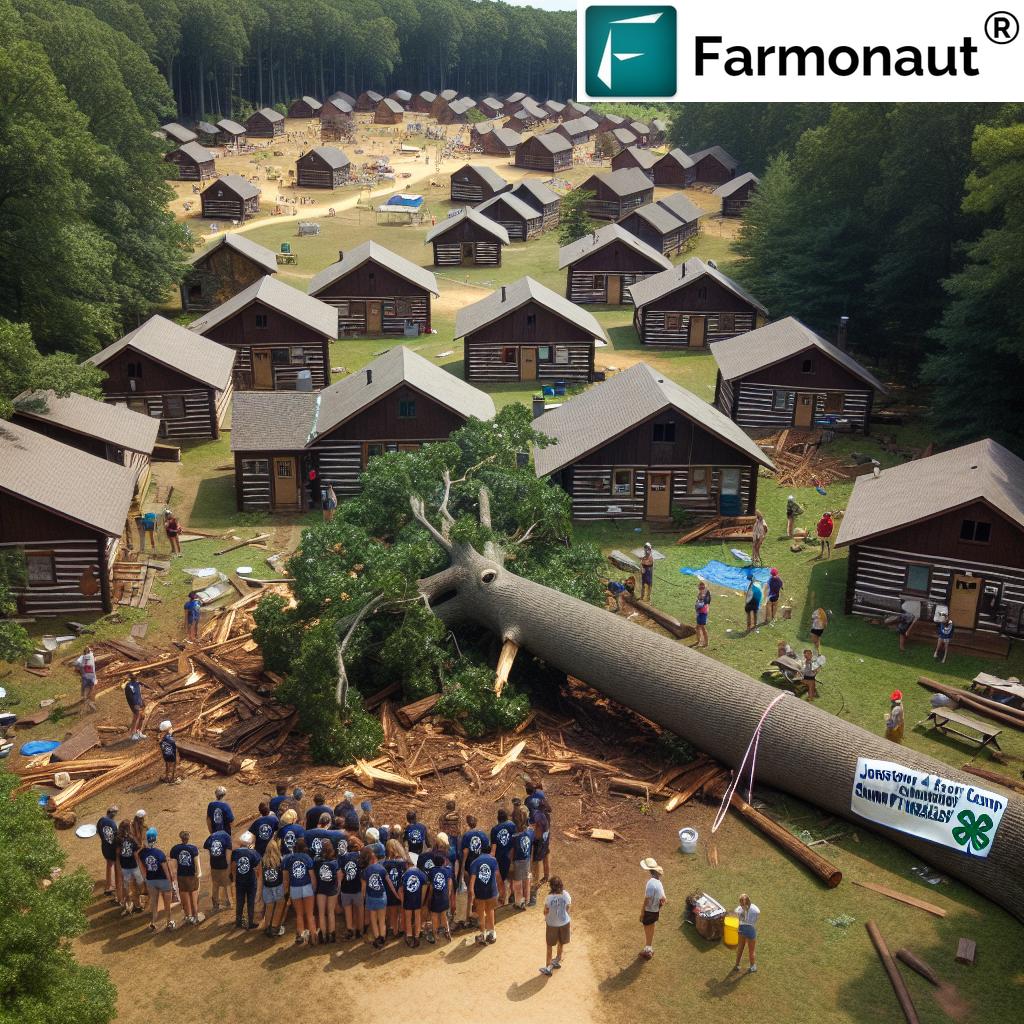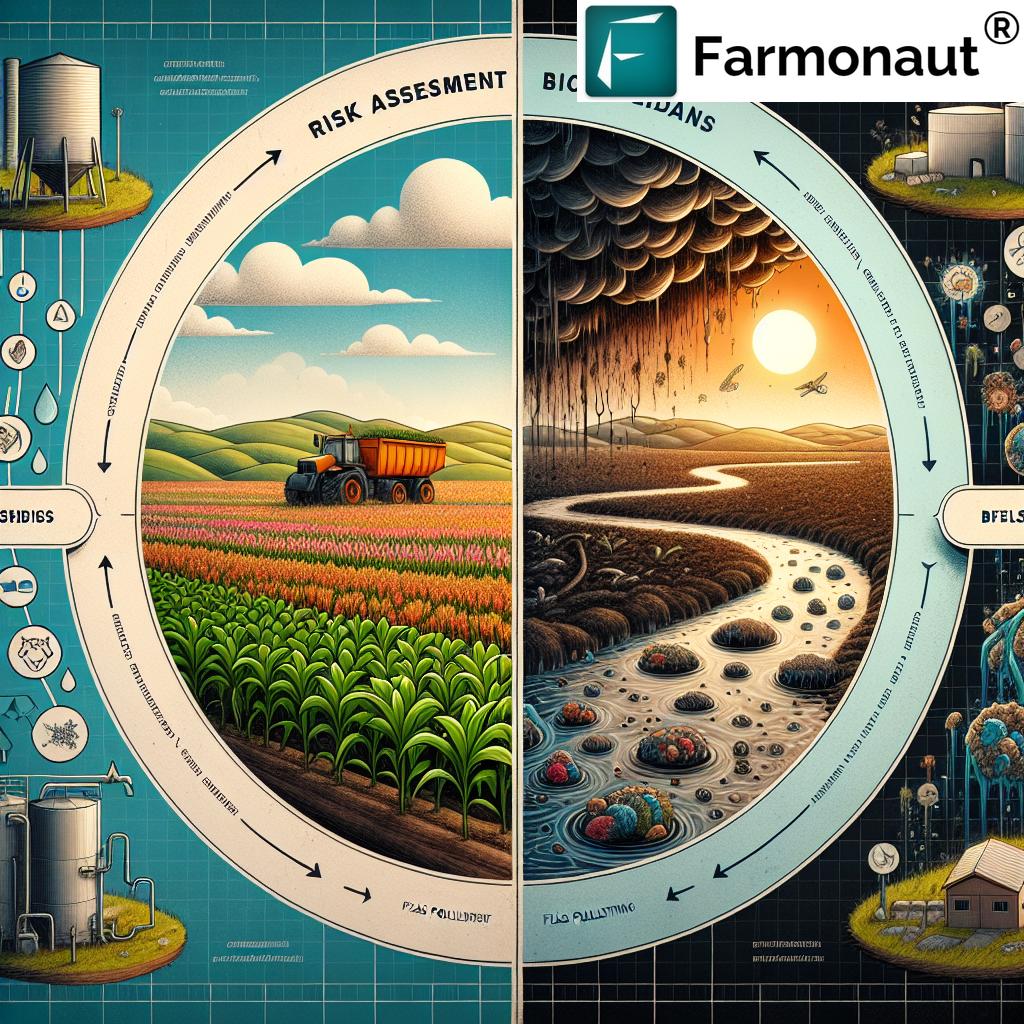Groundbreaking Research at West Lafayette: 10 Scientists Honored as AAAS Fellows for Quantum, Climate, and Genomic Advancements
“Purdue University celebrates 10 faculty members named AAAS fellows, recognizing contributions across quantum physics, climate change, and genomics.”
At Farmonaut, we’re always excited to see advancements in science and technology that push the boundaries of human knowledge. Today, we’re thrilled to share some groundbreaking news from one of the top public research universities in the United States. Purdue University, located in West Lafayette, Ind., has achieved a remarkable milestone with ten of its faculty members being named fellows of the American Association for the Advancement of Science (AAAS).
This prestigious honor recognizes outstanding contributions across diverse scientific fields, including quantum physics, climate change studies, and advanced semiconductor technology. As pioneers in agricultural technology ourselves, we at Farmonaut understand the importance of cutting-edge research and its potential to transform industries. Let’s delve into the incredible achievements of these distinguished scholars and how their work is shaping the future of science and technology.

The Significance of AAAS Fellowship
The AAAS fellowship is one of the most distinct honors within the scientific community. It recognizes members whose efforts on behalf of the advancement of science or its applications are scientifically or socially distinguished. For Purdue University, having ten faculty members elected as AAAS fellows in a single year is a testament to the institution’s commitment to excellence in research and innovation.
Karen Plaut, Purdue’s executive vice president for research, emphasized the importance of this recognition: “Having 10 Boilermakers named as fellows of the AAAS in one year underscores the high caliber of our faculty. Congratulations to our new AAAS fellows on this recognition of their achievements.”
Meet the Distinguished AAAS Fellows
Let’s take a closer look at the ten Purdue University faculty members who have been honored as AAAS fellows and their groundbreaking contributions to their respective fields:
1. Stephen L. Cameron – Insect Evolutionary Genomics
Professor Stephen L. Cameron from the College of Agriculture’s Department of Entomology has been recognized for his distinguished contributions to the field of insect evolutionary genomics. His research focuses on using mitochondrial genomics to better understand insect evolution, systematics, and genomic biology.
Cameron’s work in arthropod molecular biology and genomics, as well as environmental and evolutionary entomology, has significant implications for understanding biodiversity and ecosystem health. This research aligns with our mission at Farmonaut to promote sustainable agriculture and environmental stewardship through advanced technology.
2. Yong Chen – Quantum Physics and Materials Science
Professor Yong Chen, holding positions in both the College of Science and College of Engineering, has been honored for his contributions to condensed matter and atomic and molecular physics. His research focuses on the synthesis and studies of novel quantum matters, ranging from two-dimensional and topological quantum materials to new types of ultracold molecules and atomic Bose condensates.
Chen’s lab exploits quantum physics to manipulate electrons, atoms, spins, and photons in various materials and artificial systems. This cutting-edge research has potential applications in quantum devices, nanotechnology, and energy – areas that could revolutionize multiple industries, including agriculture.
3. Chris H. Greene – Atomic and Molecular Optics
Professor Chris H. Greene from the College of Science has been recognized for his theoretical predictions in few-body physics within the field of atomic and molecular optics. His research focuses on ultracold few-body and many-body quantum systems, electron-molecule collisions, and novel Rydberg molecules.
Greene’s work in ultrafast laser interactions with atoms and molecules could have far-reaching implications for various scientific and technological applications, potentially influencing fields such as precision agriculture and environmental monitoring.
4. Matthew Huber – Climate Dynamics and Sustainability
Professor Matthew Huber from the College of Science’s Department of Earth, Atmospheric, and Planetary Sciences has been honored for his pioneering research on past and future climate dynamics. His work significantly advances our understanding of human-induced climate impacts and sustainability.
Huber’s research focuses on the mechanisms that govern climate, the different forms that climates can take on Earth, and the relationship between climate change and life. This work is crucial for developing strategies to mitigate and adapt to climate change, which is of paramount importance to the agricultural sector and global food security.
5. Ernesto E. Marinero – Magnetic Materials Science
Professor Ernesto E. Marinero from the College of Engineering has been recognized for his distinguished contributions to the field of magnetic materials science. His research applications span energy conversion and storage, spin-based computing, and magneto-plasmonics.
At Purdue, Marinero’s work focuses on spintronics-based devices for spin-wave computing and the synthesis of nanomaterials for the development of all-solid-state energy storage devices. These advancements could lead to more efficient and sustainable energy solutions, which are crucial for various industries, including agriculture.
6. Bryan C. Pijanowski – Soundscape Ecology and Biodiversity
Professor Bryan C. Pijanowski from the College of Agriculture’s Department of Forestry and Natural Resources has been honored for his contributions to documenting and interpreting the soundscape ecology of natural and human-dominated systems across the world.
Pijanowski’s expertise in soundscape ecology and biodiversity utilizes acoustic sensors, AI tools, and big data mining techniques to understand how humans impact biodiversity. This innovative approach to environmental monitoring aligns with Farmonaut’s commitment to leveraging advanced technologies for sustainable agriculture and environmental conservation.
For those interested in learning more about how technology is revolutionizing land use in agriculture, we recommend checking out our crop plantation and forest advisory services. These services utilize satellite imagery and AI to provide valuable insights for sustainable land management and agricultural practices.
7. Alex Pothen – Combinatorial Algorithms for Scientific Computing
Professor Alex Pothen, holding positions in both the College of Science and College of Engineering, has been recognized for his distinguished contributions to and leadership in combinatorial algorithms for scientific computing. His research interests span applied and computational discrete algorithms, high-performance computing, data science, and bioinformatics.
Pothen’s work in developing efficient algorithms for complex scientific computations has far-reaching implications across various fields, including agriculture and environmental sciences. These advancements in computational methods can significantly enhance our ability to analyze large-scale data sets and make more accurate predictions in areas such as crop yield estimation and climate modeling.
8. Christie Sahley – Diversity, Equity, and Inclusion in Science
Professor Christie Sahley from the College of Science’s Department of Biological Sciences has been honored for her contributions to advancing excellence in science and engineering by supporting diversity, equity, and inclusion initiatives. Her work extends from her department and institution to regional and national levels through action and advocacy.
In addition to her efforts in promoting inclusivity in science, Sahley’s research focuses on neurobiology, particularly the cellular and molecular analysis of learning and cellular response to neural injury. This interdisciplinary approach to science and advocacy underscores the importance of diverse perspectives in driving scientific innovation and progress.

9. Ramaswamy Subramanian – Structural Biology and Scientific Infrastructure
Professor Ramaswamy Subramanian, holding positions across multiple departments and serving as the Director of the Bindley Bioscience Center, has been honored for his seminal contributions to structural biology. His work has enhanced atomic-level understanding of diverse biological processes and led to the development of scientific infrastructure in India and the U.S.
Subramanian’s expertise in structural biology and biophysics, with a focus on understanding the relationship between atomic resolution structures and molecular function, has significant implications for various fields, including agriculture and biotechnology. His research on enzymes and membrane transporters could lead to breakthroughs in crop improvement and pest resistance.
10. Peide Ye – Advanced Semiconductor Technology
Professor Peide Ye from the Elmore Family School of Electrical and Computer Engineering has been recognized for his contributions to understanding semiconductor interfaces and the technical development of transistor technology on novel channel materials. His research focuses on high-mobility channel materials, two-dimensional materials, and advanced transistors to improve performance, scalability, and energy efficiency in future computing systems.
Ye’s work in pushing the boundaries of modern electronics has potential applications across various industries, including precision agriculture and environmental monitoring. The development of more efficient and powerful computing systems could enhance our ability to process and analyze complex agricultural data, leading to more sustainable and productive farming practices.
“The AAAS fellowship honors Purdue scientists in diverse fields, including structural biology, insect evolutionary genomics, and sustainable energy storage.”
Impact on Science and Society
The recognition of these ten Purdue University faculty members as AAAS fellows underscores the institution’s commitment to pushing the boundaries of scientific knowledge and its impact on society. Their groundbreaking work spans a wide range of disciplines, from quantum physics and climate science to genomics and advanced materials.
As leaders in science and engineering, Purdue continues to drive innovation and address global challenges through interdisciplinary research and collaboration. The diverse array of research areas represented by these AAAS fellows highlights the interconnected nature of modern scientific inquiry and the potential for cross-disciplinary breakthroughs.
At Farmonaut, we recognize the importance of such advancements in science and technology for the future of agriculture and environmental sustainability. Our own efforts in leveraging satellite technology and artificial intelligence for precision agriculture align with the spirit of innovation demonstrated by these distinguished scholars.
Implications for Agriculture and Environmental Sciences
The research conducted by these AAAS fellows has significant implications for agriculture and environmental sciences. For instance:
- Professor Cameron’s work in insect evolutionary genomics could lead to better pest management strategies and crop protection methods.
- Professor Huber’s climate dynamics research is crucial for understanding and adapting to the impacts of climate change on agriculture.
- Professor Pijanowski’s soundscape ecology research provides new ways to monitor biodiversity and ecosystem health, which are vital for sustainable agriculture.
- Professor Ye’s advancements in semiconductor technology could lead to more efficient sensors and data processing tools for precision agriculture.
These scientific advancements align with Farmonaut’s mission to make precision agriculture affordable and accessible to farmers worldwide. Our large-scale farm management solutions leverage similar cutting-edge technologies to provide farmers with valuable insights and tools for optimizing their operations.
The Role of Technology in Modern Agriculture
The recognition of these Purdue scientists highlights the growing importance of advanced technology in various fields, including agriculture. At Farmonaut, we’re at the forefront of this technological revolution in farming. Our satellite-based crop health monitoring system, for example, uses multispectral satellite images to provide farmers with real-time insights into vegetation health, soil moisture levels, and other critical metrics.
Our AI-driven Jeevn AI Advisory System delivers personalized farm advice, weather forecasts, and expert crop management strategies, much like the advanced algorithms developed by some of the honored AAAS fellows. These tools help farmers make informed decisions about irrigation, fertilizer usage, and pest management, ultimately optimizing crop yields and reducing resource wastage.
For those interested in exploring how satellite technology can revolutionize their farming practices, we invite you to check out our crop plantation and forest advisory services. These services provide valuable insights for sustainable land management and agricultural practices, leveraging the power of satellite imagery and AI.
Sustainability and Environmental Impact
The research conducted by several of the honored AAAS fellows, particularly in areas such as climate dynamics and biodiversity, underscores the importance of sustainability and environmental conservation. At Farmonaut, we share this commitment to environmental stewardship through our technology-driven approach to agriculture.
Our carbon footprinting services help agribusinesses monitor and reduce their environmental impact by providing real-time data on emissions. This allows businesses to take steps towards sustainability and compliance with environmental regulations, aligning with global efforts to combat climate change.
The Future of Scientific Research and Its Applications
The diverse array of research areas represented by these AAAS fellows from Purdue University points to an exciting future for scientific research and its real-world applications. From quantum computing to climate science, the potential for groundbreaking discoveries and innovations is immense.
At Farmonaut, we’re committed to staying at the forefront of technological advancements and applying them to improve agricultural practices. Our ongoing development of AI-driven tools, satellite-based monitoring systems, and blockchain-enabled traceability solutions reflects our dedication to pushing the boundaries of what’s possible in agriculture.
For those interested in leveraging cutting-edge technology for their agricultural operations, we encourage you to explore our fleet management solutions. These tools can help optimize your agricultural machinery usage, reduce operational costs, and improve overall efficiency.
Conclusion: A Bright Future for Science and Agriculture
The recognition of these ten Purdue University faculty members as AAAS fellows is a testament to the power of scientific research and innovation. Their groundbreaking work across various disciplines not only advances our understanding of the world around us but also paves the way for practical applications that can improve lives and industries.
At Farmonaut, we’re inspired by these advancements and remain committed to applying cutting-edge technology to revolutionize agriculture. By making precision farming tools accessible and affordable, we aim to empower farmers worldwide to increase productivity, reduce resource waste, and contribute to a more sustainable future.
As we look to the future, it’s clear that the intersection of science, technology, and agriculture will play a crucial role in addressing global challenges such as food security and climate change. The groundbreaking research happening at institutions like Purdue University, combined with innovative applications in the field, gives us hope for a brighter, more sustainable future.
AAAS Fellows from Purdue University and Their Research Areas
| Scientist Name | Department/Field | Research Focus |
|---|---|---|
| Stephen L. Cameron | Entomology (College of Agriculture) | Insect evolutionary genomics, mitochondrial genomics |
| Yong Chen | Physics and Astronomy, Electrical and Computer Engineering | Quantum physics, condensed matter, novel quantum materials |
| Chris H. Greene | Physics (College of Science) | Atomic and molecular optics, few-body physics |
| Matthew Huber | Earth, Atmospheric, and Planetary Sciences | Climate dynamics, past and future climate, sustainability |
| Ernesto E. Marinero | Materials Engineering | Magnetic materials science, energy conversion and storage |
| Bryan C. Pijanowski | Forestry and Natural Resources | Soundscape ecology, biodiversity monitoring |
| Alex Pothen | Computer Science | Combinatorial algorithms for scientific computing |
| Christie Sahley | Biological Sciences | Neurobiology, diversity and inclusion in science |
| Ramaswamy Subramanian | Biological Sciences, Biomedical Engineering | Structural biology, atomic-level understanding of biological processes |
| Peide Ye | Electrical and Computer Engineering | Semiconductor interfaces, advanced transistor technology |
Frequently Asked Questions (FAQ)
- What is the significance of being named an AAAS Fellow?
Being named an AAAS Fellow is one of the most distinct honors within the scientific community. It recognizes members whose efforts on behalf of the advancement of science or its applications are scientifically or socially distinguished. - How many Purdue University faculty members were named AAAS Fellows in this class?
Ten Purdue University faculty members were named AAAS Fellows in the Class of 2025. - What scientific fields are represented by the newly elected AAAS Fellows from Purdue?
The fields represented include quantum physics, climate science, insect evolutionary genomics, structural biology, advanced semiconductor technology, and more. - How does this recognition impact Purdue University’s standing in the scientific community?
This recognition underscores Purdue’s commitment to pushing the boundaries of scientific knowledge and its impact on society, reinforcing its position as a leading public research university. - What potential applications could arise from the research conducted by these AAAS Fellows?
The research could lead to advancements in areas such as quantum computing, climate change mitigation, sustainable energy storage, precision agriculture, and biodiversity conservation.
Explore Farmonaut’s Agricultural Technology Solutions
Inspired by the groundbreaking research at Purdue University? Discover how Farmonaut is applying cutting-edge technology to revolutionize agriculture:
- Crop Monitoring and Advisory Services
- Carbon Footprinting for Sustainable Agriculture
- Advanced Fleet Management Solutions
- Blockchain-Based Product Traceability
Join us in shaping the future of agriculture with innovative, technology-driven solutions.
Earn With Farmonaut
Earn 20% recurring commission with Farmonaut’s affiliate program by sharing your promo code and helping farmers save 10%. Onboard 10 Elite farmers monthly to earn a minimum of $148,000 annually—start now and grow your income!
Learn More About Our Affiliate Program
Experience Farmonaut’s Advanced Agricultural Solutions
Ready to revolutionize your farming practices with cutting-edge technology? Explore our platform and services:
For developers interested in integrating our satellite and weather data into their applications, check out our API and API Developer Docs.





